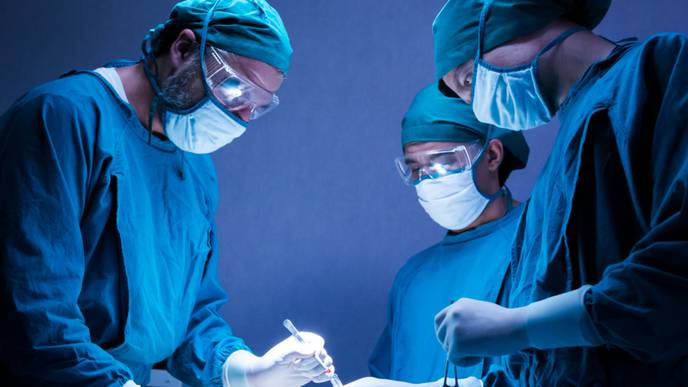ReachMD
Be part of the knowledge.™New Implants Could Reduce Infection and Lead to Better Recovery from Orthopedic Surgery

New Implants Could Reduce Infection and Lead to Better Recovery from Orthopedic Surgery
Orthopedic surgeries, such as joint replacements and fracture repairs, have become increasingly common in recent years. While these procedures have greatly improved the quality of life for many patients, there is always a risk of post-operative complications, including infection.
However, a breakthrough in implant technology may soon change that. Researchers have developed new implants that have the potential to significantly reduce the risk of infection and improve the overall recovery process for patients undergoing orthopedic surgery.
One of the key features of these new implants is the use of antimicrobial coatings. These coatings are designed to release antimicrobial agents, such as silver ions, which can effectively kill bacteria and prevent infection. By incorporating these coatings into the surface of the implants, the risk of bacterial colonization and subsequent infection is greatly reduced.
Furthermore, these implants are also designed to promote better integration with the surrounding bone tissue. Traditional implants often require the use of bone cement to secure them in place, which can lead to complications and loosening over time. The new implants, on the other hand, have a porous structure that allows for better bone ingrowth, resulting in a more stable and long-lasting implant.
Another advantage of these implants is their ability to stimulate the body's natural healing processes. Some of them are coated with growth factors or other bioactive substances that can enhance tissue regeneration and accelerate the healing of the surgical site. This can lead to faster recovery times and improved overall outcomes for patients.
While these new implants are still in the early stages of development and testing, the potential benefits they offer are promising. If successful, they could revolutionize the field of orthopedic surgery and greatly improve patient outcomes.
It is important to note that the development and implementation of these new implants will require further research and clinical trials to ensure their safety and effectiveness. However, the initial results are encouraging, and many experts believe that they could become a standard in orthopedic surgery in the near future.
In conclusion, the development of new implants with antimicrobial coatings, improved bone integration, and enhanced healing properties has the potential to reduce the risk of infection and lead to better recovery from orthopedic surgery. As technology continues to advance, patients can look forward to safer and more successful outcomes in the field of orthopedics.
© Article Copyright 1999-2023
Life Technology™.
If you would like to republish the content of this or any other article from www.lifetechnology.com for commercial purposes visit
Life Technology™ News Content Syndication Licence. If you would like to republish the content of this or any other article from www.lifetechnology.com for non commercial purposes visit
Copyright And Royalty Free RSS Feeds For Commercial And Non Commercial Use.
If you would like for us to publish your article at www.lifetechnology.com visit
Publish Your Article At Life Technology™. If you would like to advertise here and on all 100,000+ pages of www.lifetechnology.com visit
Advertise At Life Technology™. For corporate sponsorship of www.lifetechnology.com visit
Corporate Sponsorship.
Since 1999 Life Technology™ has published medical science and technology news content totally free of charge. Because we do not charge a subscription fee we would kindly request that you
Make A Donation To Life Technology™and please, do share this article with your coworkers, friends, family and favorite social media platform.
Life Technology™ Medical NewsFeedburnerGoogleRSSLife Technology™ Science NewsFeedburnerGoogleRSSLife Technology™ Technology NewsFeedburnerGoogleRSS
Facebook Comments